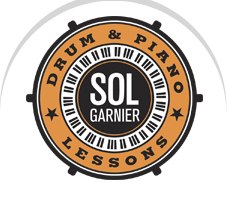There was a teacher in Paris that enjoyed a great reputation. Her name was Nadia Boulanger. Her and her sisters were in music since they were born. Nadia Boulanger’s sister, although predestined to be a great concerto player, died in her prime and never saw the fame and fortune her skills promised. Nadia became a teacher. Of course, I don’t think you heard of her. But you certainly danced to the music of one of his pupil: Quincy Jones. He was the producer of Michael Jackson, if that name rings a bell.
Quincy described his experience with Nadia as something like this, and I am not quoting, but in essence he said that she taught him all the rules of music, rhythm, melody and harmony. And, he adds, it’s only once you get all the rules, all the restraints that you have freedom.
We, as interpret, can experience the same thing. If you were to study a piece by, say, Mozart. You play it until you’re blue in the face, and then you play it some more. Chances are you’re going to build some automatisms, maybe even memorize it, in other words: you’ll know it. Let is sit. I mean the practice, let it sit. Go do something else, run some errands, sort out your stamp collection, cut your toenails, whatever. Then you go back to that Mozart titbit and you repeat the previous operation. Till you’re blue in the face, and then again and again, ad infinitum. There will be a moment, I promise when you’ll feel the freedom I’m going on about.
Once the piece is second nature, you’ll stop paying attention to the dynamics or the rhythm, the melody, etc. Instead, your brain will focus on the contrast between the accompaniment and the melody, or how to shape properly the crescendos, or how to balance the different parts and make them shine. Your brain will know the tune, it will be like a very old friend. But, just like old friend, you never use the same sentences, the same emotions to convey what you’re saying, there are little changes, subtle differences of tone, of postures, of conversations. Everything evolves, including the secure relationships we entertain with our loved one.
I wish you to feel one day what I’m talking about if you’ve never encountered it. It gives you an insight into the notes your fingers are tickling, but more than that, it gives you a deeper understanding of yourself, because, as you filter the piece through your body and mind, you also go deep into yourself to dig out the treasures you want to give to the music.

